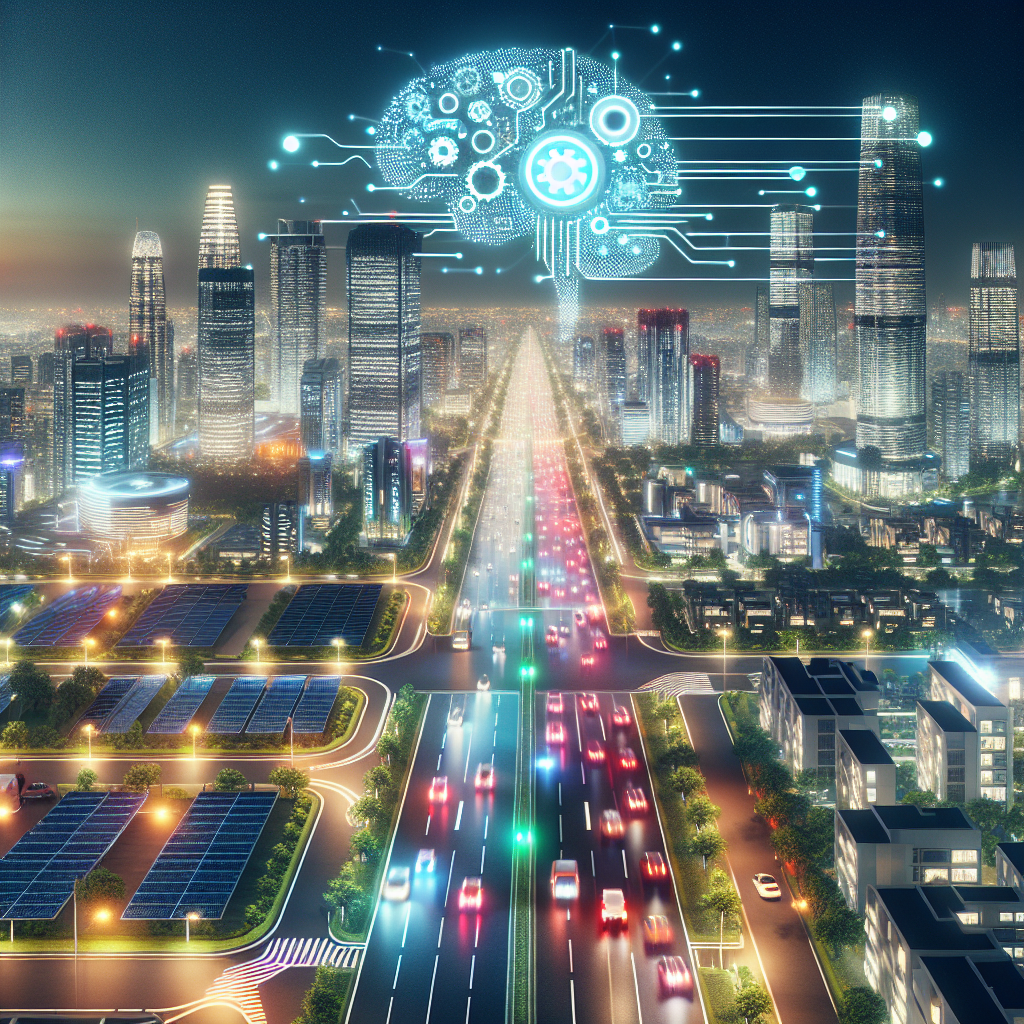In recent years, the concept of smart cities has gained significant traction as urban areas around the world seek to leverage technology to improve the quality of life for residents, enhance sustainability, and drive economic growth. One key enabler of smart cities is artificial intelligence (AI), which has the potential to revolutionize how cities are managed and operated.
AI-driven solutions can help cities address a wide range of challenges, from traffic congestion and air pollution to public safety and waste management. By harnessing the power of AI, cities can make more informed decisions, optimize resource allocation, and improve the overall efficiency of their operations.
One of the key areas where AI can make a significant impact in smart cities is in transportation. Traffic congestion is a major problem in many urban areas, leading to wasted time, increased pollution, and reduced productivity. AI-powered traffic management systems can help alleviate congestion by analyzing real-time data from sensors and cameras to optimize traffic flow, adjust traffic signals, and provide real-time updates to drivers.
AI can also play a crucial role in improving public transportation systems. By analyzing passenger data and traffic patterns, AI algorithms can optimize bus routes, enhance scheduling, and improve the overall efficiency of public transportation services. In addition, AI-driven predictive maintenance systems can help reduce downtime and improve the reliability of public transportation infrastructure.
Another area where AI can make a significant impact in smart cities is in public safety. AI-powered video surveillance systems can help cities monitor public spaces more effectively, identify potential security threats, and respond to emergencies in a timely manner. AI algorithms can analyze video feeds in real-time to detect suspicious behavior, recognize individuals of interest, and alert authorities when necessary.
AI can also be used to enhance emergency response systems. By analyzing data from various sources, including social media, traffic cameras, and weather sensors, AI algorithms can help emergency services better understand the scope of a crisis, allocate resources more effectively, and coordinate a faster response.
In addition to transportation and public safety, AI can also be applied to other areas of smart city management, such as waste management, energy efficiency, and environmental sustainability. AI-powered waste management systems can optimize collection routes, reduce landfill waste, and promote recycling. AI algorithms can also help cities reduce energy consumption by analyzing building data, optimizing energy usage, and identifying opportunities for energy efficiency improvements.
Overall, AI-driven solutions have the potential to transform how cities are managed and operated, leading to more efficient, sustainable, and livable urban environments. However, the adoption of AI in smart cities also raises a number of important questions and considerations. Below are some frequently asked questions about harnessing AI-driven solutions for smart cities:
1. How can AI help cities address environmental challenges?
AI can help cities address environmental challenges by optimizing energy usage, reducing waste, and promoting sustainability. By analyzing data from various sources, AI algorithms can identify opportunities for energy efficiency improvements, optimize waste collection routes, and promote recycling programs.
2. What are some potential privacy concerns associated with AI-powered smart city solutions?
Privacy concerns are a major consideration when implementing AI-powered smart city solutions. For example, AI-powered video surveillance systems raise questions about the collection and storage of personal data, as well as the potential for misuse or abuse of surveillance technologies. It is important for cities to establish clear guidelines and regulations to protect the privacy of residents while leveraging the benefits of AI.
3. How can cities ensure the ethical use of AI in smart city applications?
To ensure the ethical use of AI in smart city applications, cities should establish guidelines and regulations that govern the deployment and use of AI technologies. This may include developing ethical frameworks, conducting impact assessments, and promoting transparency and accountability in AI-powered systems.
4. What are some potential challenges in implementing AI-driven solutions in smart cities?
Some potential challenges in implementing AI-driven solutions in smart cities include data privacy concerns, regulatory barriers, lack of technical expertise, and resistance to change. It is important for cities to address these challenges proactively and work collaboratively with stakeholders to ensure the successful deployment of AI technologies.
5. How can cities ensure the inclusivity and accessibility of AI-driven smart city solutions?
To ensure the inclusivity and accessibility of AI-driven smart city solutions, cities should prioritize the needs of all residents, including vulnerable populations and marginalized communities. This may involve conducting community engagement activities, providing training and support for residents, and ensuring that AI technologies are designed with diversity and inclusivity in mind.
In conclusion, harnessing AI-driven solutions for smart cities has the potential to revolutionize how urban areas are managed and operated. By leveraging the power of AI, cities can address a wide range of challenges, from transportation and public safety to environmental sustainability and energy efficiency. However, the adoption of AI in smart cities also raises important questions and considerations, including privacy concerns, ethical considerations, and challenges in implementation. By addressing these issues proactively and collaboratively, cities can maximize the benefits of AI technologies and create more efficient, sustainable, and livable urban environments for residents.

